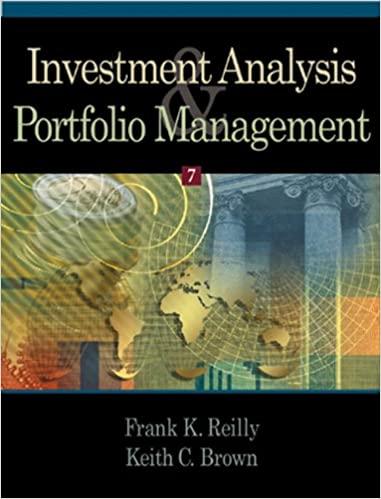Question
ABC Company is conducting a project with an up-front cost at t = 0 of $1,100,000. The project's subsequent cash flows depends on whether a
ABC Company is conducting a project with an up-front cost at t = 0 of $1,100,000. The project's subsequent cash flows depends on whether a competitor's product is approved by FDA. There is a 60% chance that the competitive product will be rejected, in which case the company's expected cash flows will be $505,976 at the end of each of the next four years (t = 1 to 4). There is a 40% chance that the competitor's product will be approved, in which case the expected cash flows will be only $153,978 in t = 1 to 4. The company will know for sure one year from today whether the competitor's product has been approved.
If the company waits a year, the project's up-front cost at t = 1 will remain at $1,100,000. The subsequent cash flows will also remain the same with the same probabilities as no waiting, but will be received only for three years (t = 2 to 4). All cash flows are discounted at the company's WACC of 10%.
What will the NPV at t=0 for each of the two strategies be? Round your answer to the nearest dollar, e.g., xxx,xxx. (Hint: Refer to the Evaluation of Investment Timing Option example in Real Options.)
NPV at t=0 if the company proceeds today = $ NPV at t=0 if the company waits a year = $
Step by Step Solution
There are 3 Steps involved in it
Step: 1

Get Instant Access to Expert-Tailored Solutions
See step-by-step solutions with expert insights and AI powered tools for academic success
Step: 2

Step: 3

Ace Your Homework with AI
Get the answers you need in no time with our AI-driven, step-by-step assistance
Get Started


